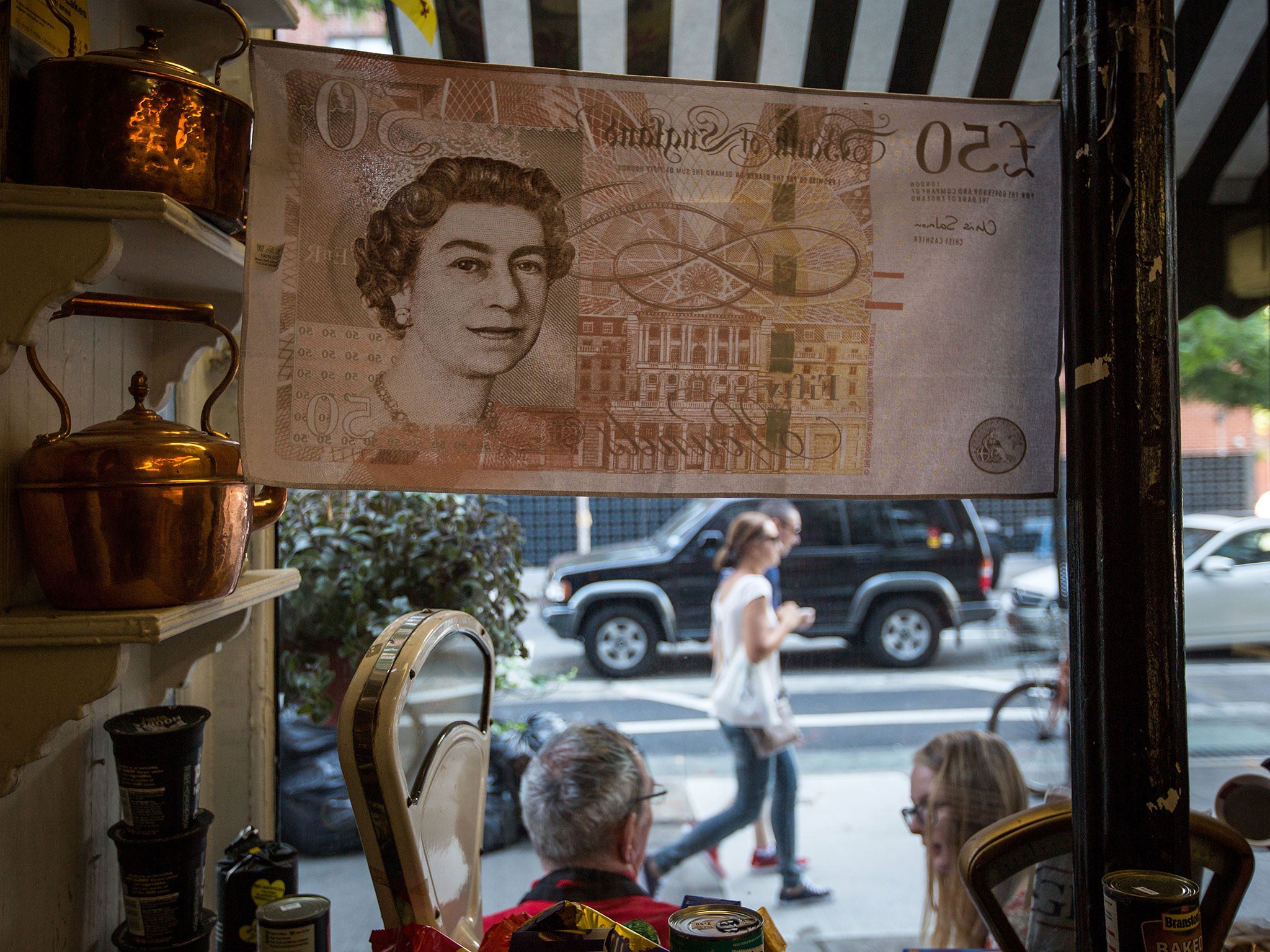5 ways today’s Brexit crisis will affect you
The EU referendum has led to turmoil in financial markets around the world - but what does it all mean? And what is the economic significance of the moves we saw? We examine the big issues here

Your support helps us to tell the story
From reproductive rights to climate change to Big Tech, The Independent is on the ground when the story is developing. Whether it's investigating the financials of Elon Musk's pro-Trump PAC or producing our latest documentary, 'The A Word', which shines a light on the American women fighting for reproductive rights, we know how important it is to parse out the facts from the messaging.
At such a critical moment in US history, we need reporters on the ground. Your donation allows us to keep sending journalists to speak to both sides of the story.
The Independent is trusted by Americans across the entire political spectrum. And unlike many other quality news outlets, we choose not to lock Americans out of our reporting and analysis with paywalls. We believe quality journalism should be available to everyone, paid for by those who can afford it.
Your support makes all the difference.The pound: what happened?
The pound fell to a fresh 31-year-low against the dollar. Today one pound bought just $1.32. That was lower than in any year since 1985 – lower even than the level it sank to last Friday in the wake of the referendum result.
What it means
The pound’s massive correction last Friday was not a one-off. Boris Johnson, the Leave campaign figurehead said today that markets were “stable”. That was wishful thinking. The markets are still plainly extremely rattled by Brexit and there seems to be further for the pound to fall. Some analysts speculated before the referendum that it could fall 20 per cent before stabilising. So far it is down around 14 per cent.
Gilt yields: what happened?
10 year Gilt yields – the interest rate markets effectively charge to the Government for borrowing for a decade – dipped below 1 per cent for the first time in history.
What it means
Investors are piling money into Gilts, pushing their price up and their yields down. They are doing so because UK government debt is considered an ultra-safe asset and ultra-safe assets always attract buyers in times of economic stress. Slumping yields also reflects the fact traders expect weak growth and inflation over the coming decade. It may also signal that they expect the Bank of England to start buying up government bonds against soon, as it re-starts its Quantitative Easing programme to support domestic economic demand.
Share trading suspension: what happened?
Trading in shares in the Royal Bank of Scotland and Barclays had to be temporarily suspended on the London Stock Exchange due to outsize price drops.
What it means
Individual sectors of the economy are being singled out for punishment by investors - and banks that have big UK domestic operations among the biggest losers. The shares of RBS, which is still majority-owned by the taxpayer, have fallen by almost a third in since last Friday. That’s equivalent to an £8bn paper loss for the public purse in just four days. The shares are now trading not far from where they were in 2009 when RBS was bailed. UK banks have been hit hard because people assume they will suffer as the domestic property market suffers amid the uncertainty created by Brexit.
Housing: what happened?
The London estate agency Foxtons announced a profits warning, prompting a quarter of its market value to be wiped out. The UK’s biggest house builders have also seen massive falls since last Friday. Taylor Wimpey has now lost 40 per cent of its value since last week.
What it means
Foxtons’ profit warning comes amid a widespread expectation that the UK housing market will suffer due to the Brexit vote, as homeowners sit on their hands and foreign buyers refrain from investing in the UK. In the run-up to the referendum, the Treasury had forecast house prices might take a 15 per cent hit over the next two years if Britain voted to Leave. If that is correct, more property sector companies will
Airlines: what happened?
Easyjet shares were marked down by almost a quarter after a profits warning. This follows IAG, which owns British Airways, losing a fifth of its value last week when it issued a profits warning on the same day as the referendum results emerged.
What it means
Easyjet also attributed its profits warning to Brexit, saying the outcome of the vote would lead to “additional economic and consumer uncertainty”. Easyjet’s business model is built around Britons flying abroad for holidays. The decline in the value of the pound could dissuade people from taking foreign holidays, meaning lower profits. IAG has been marked down for the same reason. There are also general fears over whether UK airlines will ultimately retain access to the EU common aviation area.
Join our commenting forum
Join thought-provoking conversations, follow other Independent readers and see their replies
Comments